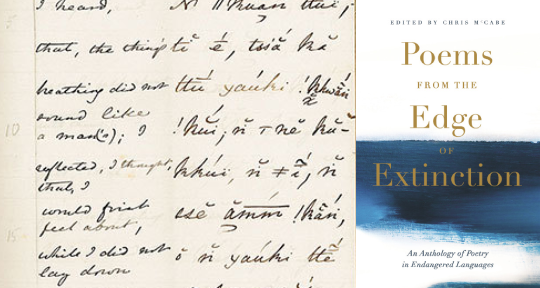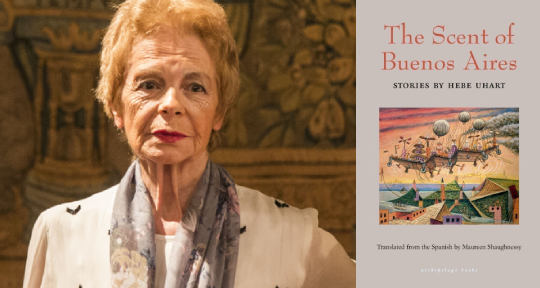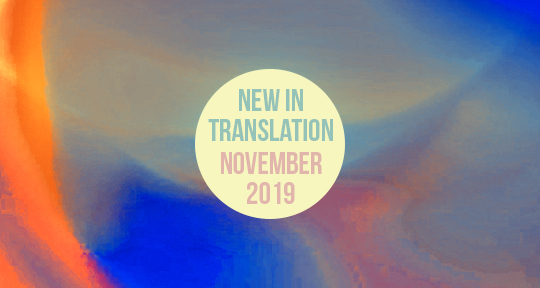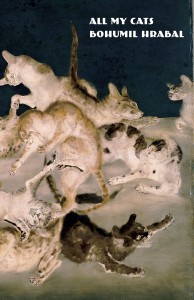I am beginning to write in our language,
but it is difficult.Only the elders speak our words,
and they are forgetting.
So begins “C’etsesen” (“The Poet”), written in Ahtna, an indigenous language of Alaska, by John Elvis Smercer. In 1980, there were about one hundred and twenty speakers of Ahtna. At the time of this poem’s publication in 2011, there were about twenty. Today only about a dozen fluent speakers remain. Smercer’s lines reveal his urgent concern with the disappearance of his language and the weight of his task in preventing the language from slipping away. It is a race against time, between generations, for the young to learn the language before the old leave, taking the words with them.
Chris McCabe, editor of the anthology Poems From the Edge of Extinction, has equally set out on such a task: to collect, record, and preserve poems from multiple endangered languages. The anthology grew out of the Endangered Poetry Project, launched at the National Library, at London’s Southbank Centre, in 2017. The project seeks submissions from the public of any poem in an endangered language in order to build an archive and record of these poems for future generations. Of the world’s seven thousand spoken languages, over half are endangered. By the end of this century, experts estimate that these will have disappeared, with no living speakers remaining. Language activism has been growing since the early 2000s, and the United Nations declared 2019 the International Year of Indigenous Languages (IYIL 2019) to raise global awareness of the consequences of the endangerment of indigenous languages. McCabe’s anthology, published to coincide with IYIL 2019, contains fifty poems, each in a different endangered language (as identified by UNESCO’s Atlas of the World’s Languages in Danger), presented in the original alongside an English translation; the result is an urgent and illuminating collection encompassing linguistics, sociology, politics, criticism, and philosophy that, in its totality, represents a manifesto of resistance.











